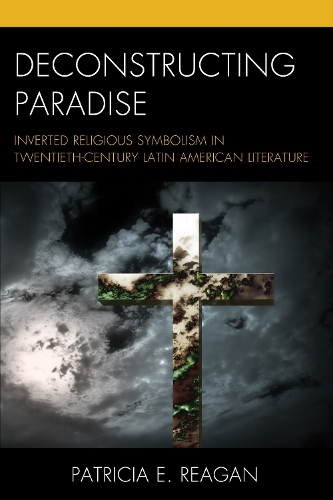
Deconstructing Paradise: Inverted Religious Symbolism in Twentieth-Century Latin American Literature
(Hardback)
Publishing Details
Deconstructing Paradise: Inverted Religious Symbolism in Twentieth-Century Latin American Literature
By (Author) Patricia E. Reagan
Bloomsbury Publishing PLC
Lexington Books
23rd June 2016
United States
Classifications
Professional and Scholarly
Non Fiction
Religious issues and debates
860.9006
Physical Properties
Hardback
160
Width 157mm, Height 237mm, Spine 18mm
422g
Description
Deconstructing Paradise investigates Christian symbols that appear in Latin American Literature in an inverted way. The texts under investigation invert the Christian center to generate a social, political, cultural, or even artistic commentary. In doing so, each text underscores a search for meaning that rejects the centering presence of the more traditional Christian focus that has long validated humankinds existence both in society and in literature. As Deconstructing Paradise examines, finding a unified center around which to construct meaning is no longer possible, although the search for meaning persists in the inverted Christian center. The first three chapters analyze the trifecta of novels that offer a full allegory of inverted Christian symbolism including: Miguel ngel Asturias El Seor Presidente; Juan Rulfos Pedro Pramo and Jos Donosos El lugar sin lmites. Chapters Four and Five focus on inverted Christ and inverted Judas figures in multiple novels and short fiction. As many Latin American literary critics affirm, it is increasingly difficult to categorize fiction after the Boom, although even the usefulness of these categories is ultimately questionable. Literary critics now look for patterns and Deconstructing Paradise offers one such pattern by identifying a trend in an impressive scope of the well-known authors of twentieth-century Latin American literature, while also tracing this pattern back to nineteenth-century precursors. Deconstructing Paradise offers a unique and comprehensive look at a significant trend that will undoubtedly foment new ideas and paths of study in contemporary Latin American literature.
Reviews
One of the abiding myths of Latin American culture is that it is grounded in Catholic symbolism and should be read as such. While this is partially true, it underestimates the continuing enormous pull of a complex range of indigenous faiths, often seen as minor decorative arts, and of non-Catholic faiths such as Judaism, Pentocostal sects, and now Mormonism. In this context, a careful examination of the deconstructing of Catholic myths and dogmas, such as that provided by Deconstructing Paradise, is all the more suggestive because of how it can lead to the very non-traditionally Catholic of contemporary Latin American religions. -- David William Foster, Arizona State University
While a number of critics of the Latin American New Novel have identified and interpreted a range of inverted Christian images, the originality of this book is that it brings together such instances in order to identify a pattern or trend that actually characterizes twentieth-century Latin American fiction. This is an important and overdue contribution to mainstream conceptions of the nueva narrativa. -- Philip Swanson, Hughes Professor of Spanish, University of Sheffield
Author Bio
Patricia E. Reagan is associate professor of Spanish at Randolph-Macon College
